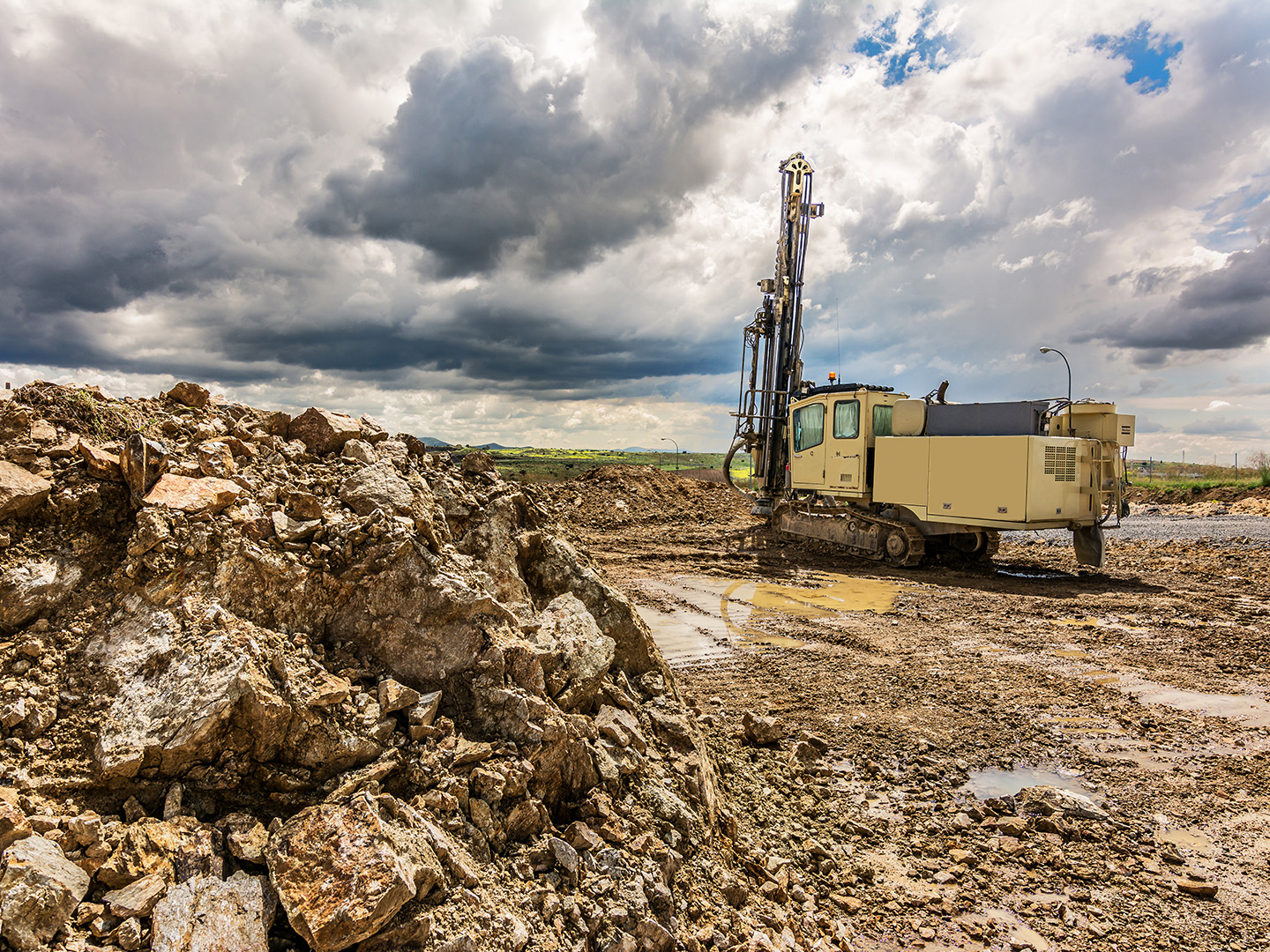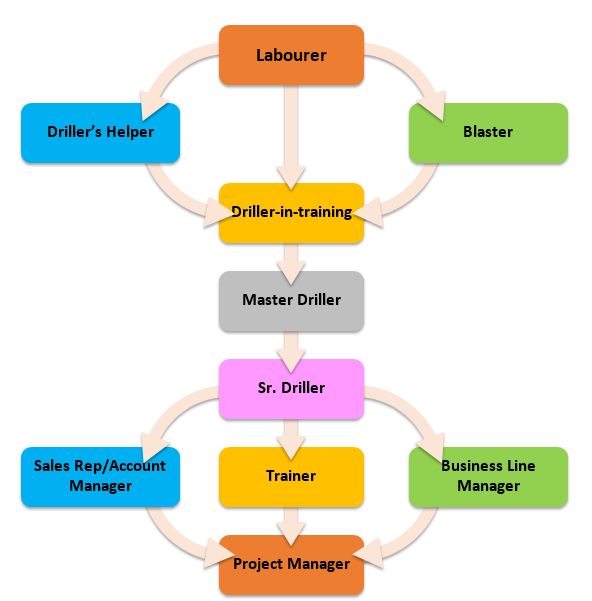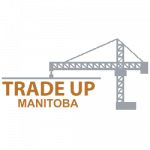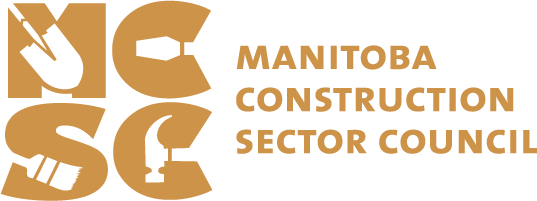
AT A GLANCE
- Drive, operate and completely understand different varieties of drilling machines {rotary, Tophammer, Down the Hole (DTH)} in the open-pit mining or quarrying sectors
- Operate drilling machines to drill blast holes in different rock conditions for road or other construction applications
- Operate tracked or truck-mounted equipment to drill holes for building foundations or pilings
- Identify location and stake out pattern of holes to be drilled, load blast holes with explosives and detonate explosives to dislodge coal, ore or rock
Possible Career Path for a DRILLER:

Source: Driller in Training, Intro Module (MCSC)
CAREER VIDEO(S)
WORK ENVIRONMENT
Surface drillers work in these types of work environments:
- Drilling contracting
- Construction companies
- Quarrying companies
Surface drillers need to be aware of the following:
- It is common to work outdoors in all kinds of weather
- It is a physically demanding job
- Possible Occupational Hazards: injury from heavy equipment and risks associated with explosion and implosion
Drillers (may) have to:
- Set up and operate heavy machinery
- Be responsible for usign their equipment properly & keep it in good condition
- Work long hours - usually 9 to 11 hours a day
- Travel to remote locations
- Spend extended periods of time away from home
- Spend a lot of time on the road
- Drive to different construction sites
Source: Careercruising.com (Surface Driller)
MINI SKILLS ASSESSMENT
If you answer YES to the questions below, then a career as a Driller could be right for you!
- Are you strong and fit?
- Are you a self-motivated learner?
- Are you ready for a challenge?
- Do you like working independently and as part of a team?
- Are you motivated, self-reliant, dependable and responsible?
- Do you like solving problems?
- Do you enjoy travel and working outdoors?
- Do you like working with machines?
- Are you computer literate?
Source: Driller in Training, Intro Module (MCSC)
WAGES
| Low Wage | Average Wage | High Wage |
|---|---|---|
| $19.00/hour (average in MB) | $28.00/hour (average in MB) | $33.00/hour (average in MB) |
TRAINING
If you are still in high school, here are some suggested subject areas to study that could help prepare you for further training in this field. Please check if these courses are available at your school and/or whether they will meet your graduation requirements. Some examples may include the following:
- English
- Mathematics
- Science: Physics, Chemistry
- Computers, Electronics & Communications Technology
- Geography, Earth & Environmental Science
Source: www2.careercruising.com (Explosives Specialist)
In 2016, Manitoba Construction Sector Council (MCSC) partnered with Austin Powder Ltd., Atlas Copco, Agassiz Drilling, Hugh Munro Construction Ltd. (HMCL), and the Province of Manitoba to develop a Driller in Training Certificate.
Entrance Requirements to become a Driller-in-training:
- Excellent oral and written communication skills
-
Clear driver's abstract
- Clear criminal record
- Must be able to pass a drug test
- Construction experience preferred
Duration:
This certificate program is an independent study program that can be completed between 6 months to 1.5 years.
Delivery:
- A mentor driller needs to be assigned by the company and
- Approved / Registered with MCSC
8 MODULES
Module 1: Safety at the Site
Module 2: Rocks, Drilling and Maintenance
Module 3: Drill patterns, Navigation and Start up Procedures
Module 4: Simulator Basics
Module 5: Simulator Pre-ops, Controls and Booms
Module 6: Simulator Advanced Tramming and Positioning
Module 7: Simulator Accurate Drilling
Module 8: On-the-Job: A final Review
In order to receive a certificate from MCSC, you need to successfully complete the 8 modules, including:
- Review questions
- Personal log
- Case studies
- Worksite assignments
- Simulation exercises
- Mid and final performance reviews by the mentor driller
ASSOCIATIONS
Click the links below for associations related to this career!

